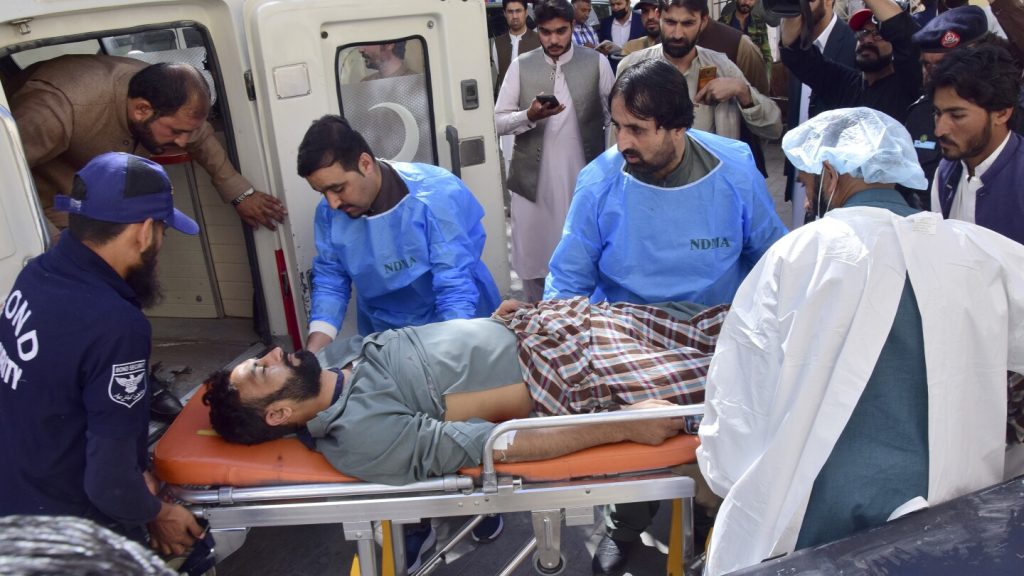A powerful bomb attached to a motorcycle exploded near a vehicle carrying police officers assigned to protect polio workers in Mastung, Balochistan province in Pakistan. The attack killed nine people, including five children, and wounded 17 others. Local police chief Fateh Mohammad reported that a motorized rickshaw carrying schoolchildren was nearby when the bombing happened, resulting in the deaths of five children, a police officer, and two passersby. Some of the wounded were taken to a hospital in Quetta, where seven died on the spot, and two critically wounded men died later. While no one immediately claimed responsibility for the attack, suspicion falls on separatist groups and the Pakistani Taliban, which have increased attacks on security forces and civilians in recent months.
The attack occurred as police officers were heading to a health center to escort polio workers for a door-to-door vaccination campaign targeting 45 million children under 5. The ongoing campaign aims to address the surge in new polio cases in the region. Pakistan has recorded 41 polio cases across 71 districts so far this year. Just days before this attack, militants targeted a health center involved in the anti-polio campaign in the northwestern district of Orakzai, resulting in a shootout that left two policemen and three attackers dead. Militants in Pakistan often target police and health workers during polio vaccination drives, claiming they are part of a Western conspiracy to sterilize children.
Following the bombing, Prime Minister Shehbaz Sharif and the chief minister of Balochistan, Sarfraz Bugti, condemned the attack and reaffirmed their commitment to eliminating insurgents from the country. U.N. Secretary-General Antonio Guterres also strongly condemned the attack, urging the government to investigate and ensure the perpetrators are brought to justice. Balochistan has been plagued by a long-running insurgency, with various separatist groups, including the Baloch Liberation Army, staging attacks mainly on security forces. Last month, the BLA claimed responsibility for a bombing outside an airport in Karachi that targeted Chinese nationals, killing two workers and injuring eight.
China, a key investor in Pakistan’s infrastructure projects under the Belt and Road Initiative, has expressed concern over the security of its nationals in the country. Chinese Ambassador Jiang Zaidong urged Pakistan to take action against insurgents responsible for attacks on Chinese workers. Pakistan’s Foreign Ministry spokesperson responded, stating that the government is committed to providing full security to Chinese nationals and projects in Pakistan. One Pakistani hotel chain, Avari, mentioned that the government has instructed that transportation and airport transfers for Chinese guests must be arranged via a bomb/bullet-proof vehicle with security protocols. The statement from the ambassador was deemed perplexing considering the positive diplomatic relations between the two countries.
The attack in Mastung highlights the ongoing security challenges in Balochistan and the threat posed by militant groups in the region. The targeting of polio workers and security forces further underscores the obstacles faced in eradicating polio in Pakistan, one of the two countries in the world where the spread of the disease has not been halted. The government’s response to the attack, along with international condemnation and calls for justice, emphasizes the need for continued efforts to combat terrorism and ensure the safety of all citizens, including vulnerable children and healthcare workers. The incident serves as a grim reminder of the persistent violence and instability in certain regions of Pakistan and the impact it has on innocent lives.


